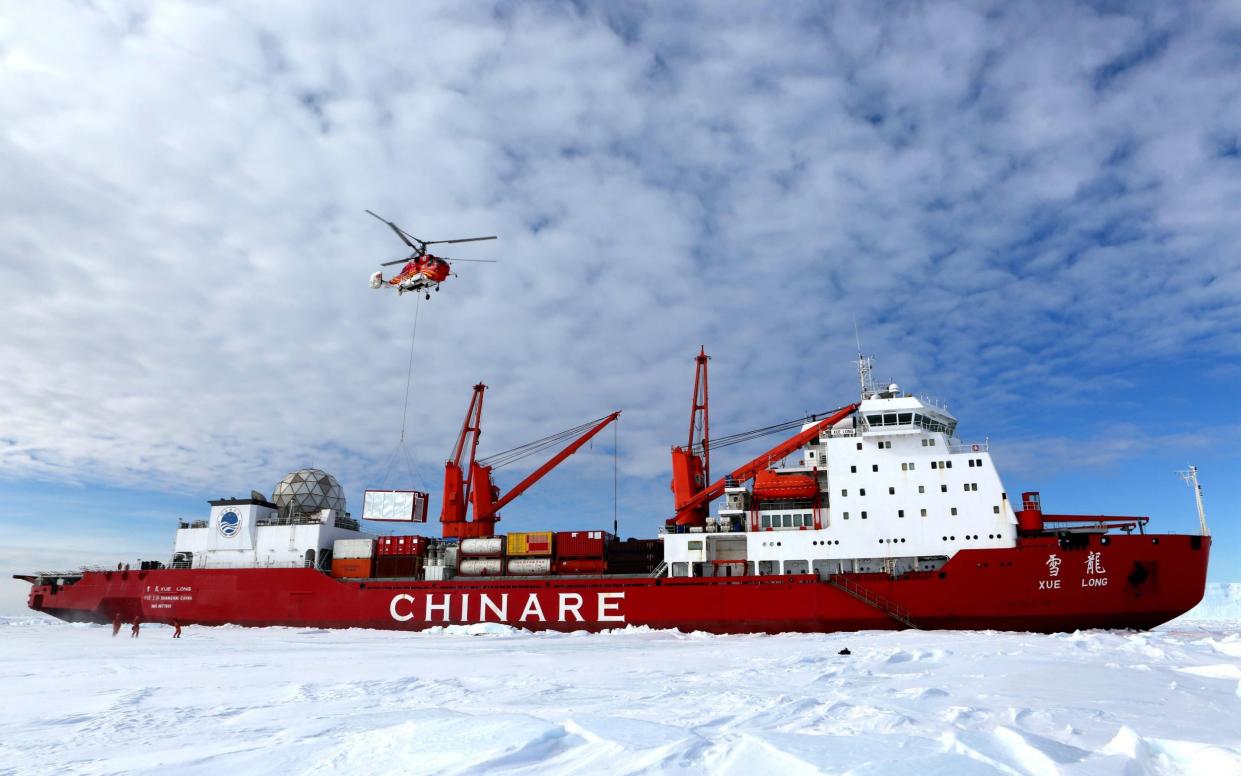China playing long game for vital resources and military advantage in Antarctica, say analysts

Perched on the bleak southern coast of Inexpressible Island, China’s new crucifix-shaped scientific research station in Antarctica has triggered alarm bells about Beijing’s ambitions in the world’s southernmost continent.
The Qinling base, occupying 5,244 square metres near the deep bay of the Ross Sea, opened in February, and can operate through the brutal winter months while housing up to 80 people in summer.
Qinling is expected to include a wharf for icebreaker ships and is well positioned to collect signals intelligence over Australia and New Zealand and telemetry data on rockets launched from Australia’s new Arnhem Space Centre, according to the US-based Centre for Strategic and International Studies.
It will also help China “fill in a major gap” in its ability to access Antarctica.
The station is China’s fifth, on a par with other major actors in Antarctica, including the UK, Russia, and the United States, which has the largest research presence, including the biggest facility in its McMurdo base.
But the speed of China’s expanding footprint has raised fears that Beijing is aiming to extend its surveillance capabilities, gain strategic control over valuable resources and shipping routes, or even establish a future military presence there when the continent’s governance treaty expires in 2048.
Beijing, “like all parties has ambitions for Antarctica beyond science,” Dr Elizabeth Buchanan, an expert associate of the ANU National Security College, told The Telegraph.
“The problem, for the West, broadly, becomes that China is more capable and credible in terms of concerns it might one day look to exploit its footprint for economic, and strategic, advantage. Any base could be refashioned for military purposes,” she added.
Scramble for influence forecast
Seven countries – the UK, Australia, France, New Zealand, Norway, Argentina and Chile – maintain territorial claims in Antarctica, which are not recognised by most other nations. The US and Russia have a “basis of claim”.
In practice, the continent is governed by parties to the 1959 Antarctic Treaty, which restricts activities to “peaceful purposes only”. Military personnel can conduct scientific research but are banned from setting up bases, carrying out manoeuvres, or testing weapons.
That treaty is due to be revised in 2048, when new sovereignty claims may trigger a scramble for influence over minerals, including gold, chromium, uranium and coal, resources and territory.
Countries may fight in the future to “provide security towards those mineral resources which are going to be very valuable in 10, 20 more years,” said Dr Carlos Solar, a senior research fellow in Latin American security at the Royal United Services Institute.

By creating a fifth base, Beijing is declaring its strong focus in Antarctica even as other countries are receding from other parts of the world to focus on resources, he said.
“China’s interests are to be in the best position that they can be for 2048,” Dr Solar added.
Beijing’s Antarctic interests are purposefully framed “in a long-term decadal strategic manner,” said Dr Buchanan.
For example, the position of the new base in the continent’s Pacific vector could give China the ability to draw a line from the eastern entry point of the Arctic Ocean straight down to Qinling, she explained.
“This creates an interesting capability and future potential buffer for curtailing US seapower,” she added.
Beijing rejects espionage claims
A 2022 Pentagon report supported the view that China’s new infrastructure was likely to be intended in part to strengthen future claims to natural resources, and improve the capabilities of the People’s Liberation Army.
This could mean increased surveillance as Qinling’s equipment “can concurrently be used for intercepting other nations’ satellite communications,” suggested the US-based Centre for Strategic and International Studies in a study last April.
China has rejected claims that its stations will be used for espionage.
Last month, its foreign ministry stated the construction of Qinling was “fully in line with international rules and procedures concerning Antarctica”.

